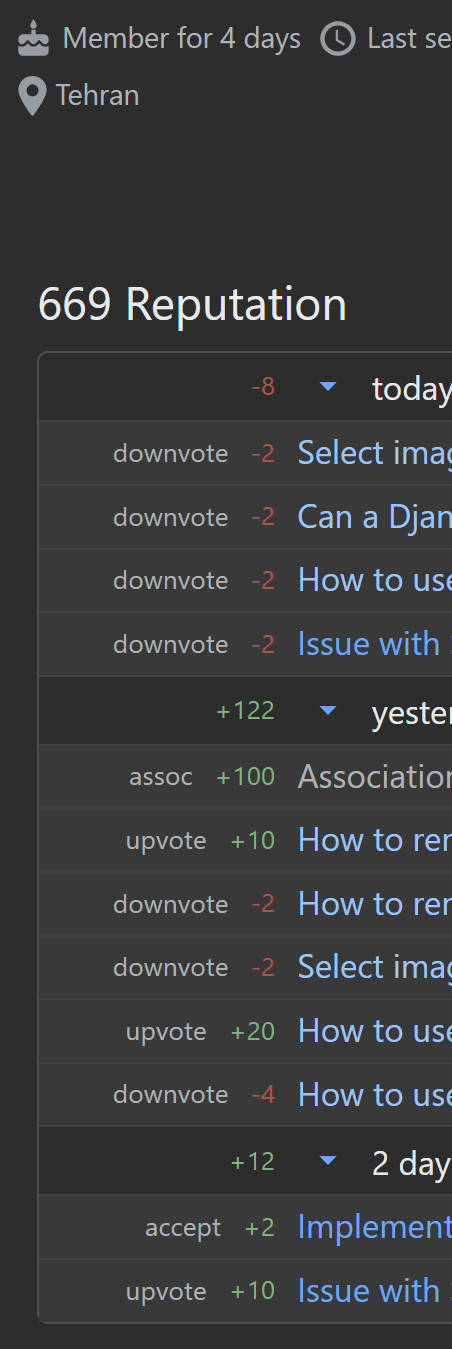The usual explanation is bounties. I don't know if they show up in that view. I think they really ought to, if they don't.
However, I can't let this pass without addressing the elephant in the room.
The user in question vehemently denies (in comments) using ChatGPT to write answers, and has been getting rather heated about it, claiming to have reported comments, questioning whether people have "considered the implications if your statement turns out to be incorrect" and so forth.
Here is a sample of "the user's writing", from the most recent undeleted answer:
The DownloadAndRenameImages procedure is responsible for iterating through the rows and downloading the images. For each image, it also calls the RenameShape procedure to rename the picture using the value from cell "A". The RenameShape procedure creates a temporary shape using the AddPicture method, assigns the new name, and then deletes the shape.
Here is a sample of the user's writing, from the profile page:
I'm learning programming machine and eager know machine learning. I have started programming in student LOGO programming language in 1993. Now I'm in python.
Another answer shows a bizarre inconsistency in displayed level of English proficiency - consistent with copying and pasting ChatGPT content into an attempt at a hand-written answer:
Now, when call the toWeirdCase function with a string, it will alternate the case of characters while ignoring spaces.
console.log(toWeirdCase("asdfghjkl")); // Output: "AsDfGhJkL"
console.log(toWeirdCase("hello world")); // Output: "HeLlO WoRlD"
Note: The updated function assumes that you want to ignore spaces while alternating the case of alphabetic characters. If you also want to ignore other non-alphabetic characters, you can modify the condition in the if statement accordingly.
Hope this help you.
The shift from making basic errors in verb conjugation, to perfectly writing complex sentence structures straight out of a high school essay, and back again, is rather striking.
(Aside from that: the corresponding code offered is nonsensical, and spaces aren't actually ignored. This prose does accurately describe the behaviour of the code; but the desired output for toWeirdCase("hello world") is presumably "HeLlO wOrLd" instead. The code uselessly "skips" spaces by conditionally "not uppercasing" them; but of course this has no effect on the result, as JavaScript allows uppercasing a space just fine, and the result is just an ordinary space.)
For that matter, those comments themselves read like ChatGPT output in many cases:
Undermining efforts and devaluing answers to questions can occur when making incorrect statements. Disregarding the rules and regulations of commenting on When shouldn't I comment in Stackoverflow? diminishes the hard work of contributors. While considering the possibility of your viewpoint being correct, it's important to use the specialized chat for debates and speculations rather than publicly expressing such statements. Please raise your concerns in the appropriate chat for a response and resolution.
This is exactly the sort of thing I would expect ChatGPT to output when suitably instructed. It presents a lot of prose that superficially refers to policy, but it doesn't have a clue what the policy actually is (there is no "specialized chat" relevant to the topic), makes up page titles, and takes on a bizarrely academic tone that makes no sense in context.
For how much longer would the company like to pretend that it is not possible in principle to detect answers written by ChatGPT; or that moderators, while not on strike, had any significant error rate in doing so?
Especially when there seems to be evidence that such answers are written in an attempt to collect bounties?
